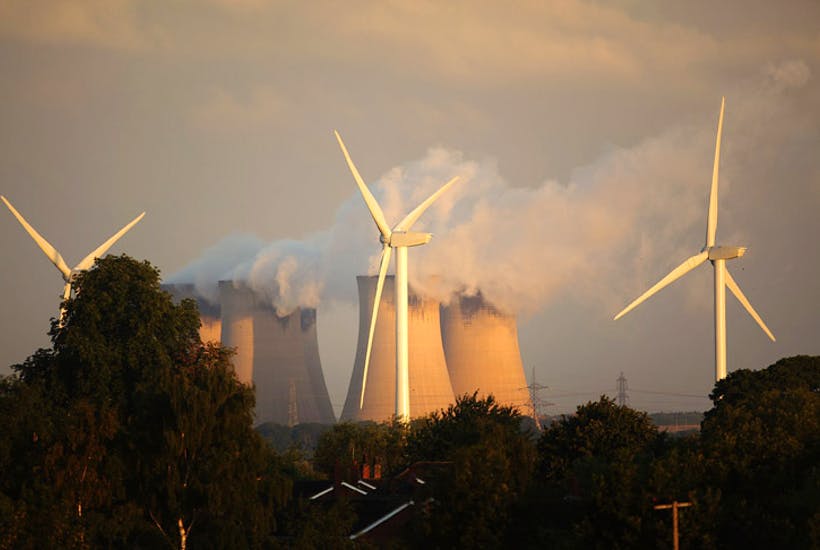Britain’s ability to keep the lights on has just been thrown into doubt by the European Court of Justice. It has ruled that the backbone of the UK’s capacity market energy scheme, which pays power stations to generate electricity, is illegal state aid and must be suspended. To call this a body blow for energy security is a gross understatement; as you read these words Whitehall is desperately trying to reassure generators and very nervous investors.
Payments to power stations through the capacity market have now been stopped until the Government can get permission from the European Commission to restart them, but this could take years. In the scheme, energy companies bid years in advance for billpayer funded subsidies to provide backup power from gas, coal and other power stations at crunch times during the winter.
Ministers are now appealing the decision and trying to get the Commission to approve the policy, which has been in place since 2014. A short term fix to try and secure enough power for this winter is planned but this is likely to mean much more imported power through undersea interconnector cables from the continent. Against the fog and noise of Brexit this ruling goes to the heart of the Prime Minister’s proposed deal now in front of MPs, where the ECJ will retain a key future role.
Shockwaves are already being felt across the energy sector as power companies will not receive the payments they successfully bid for and now face big losses; they could seek to recoup these losses through wholesale power prices. Another key question for a shocked Whitehall is whether the ruling means the Government is now retrospectively liable for payments it has already made. This would run into billions.
So far the capacity market has delivered investment in much needed new power plants, helped soften energy price spikes and ensured enough power is on standby to meet demand. It is not a perfect system but its loss could put up to eight gigawatts (GW) of new power stations at risk and force existing power stations, up to six GW or over 10 per cent of firm generating capacity – importantly those backbone gas fired power stations – to close years before they should. Supply issues will then become very real as spare electricity generating margins become tight and prices soar.
Importantly the European Commission cleared the capacity market scheme in 2014 thus agreeing to the key flank of the then Coalition’s flagship electricity market reform legislation.
The ruling starkly exposes how Britain inside the EU is unable to deliver an independent and accountable energy policy. But perhaps more critically in light of the Prime Minister’s proposed deal to maintain UK/EU state aid compliance and ECJ jurisdiction after Brexit, it shows why Parliament and UK competition and market regulators must replace the Commission and EU judges, in the national interest. It is important to detail the impact of EU policy on the UK’s energy infrastructure, nodded through by a subservient Whitehall over a generation and what continued alignment with the EU on energy, as proposed in the deal, will mean.
Since 2000, EU diktat has forced the UK to close over fifteen large power stations and build thousands of wind turbines and solar panels to generate electricity. Though many of the older and polluting power plants would have closed over time regardless, this should have been done when the market was ready to replace their contribution. Other EU states simply chose to ignore the Directives to maintain their energy security.
Remaining tied to EU policy, as set out in the Prime Minister’s deal entails a series of important concessions and cross-Channel energy supply commitments which will primarily benefit the European market and its generators. These include proposals from the Commission for the mandatory sharing of gas supplies which could lead to gas rationing in the UK following a severe weather front in Europe alongside a gas supply crisis there. This drive for more interconnection on gas and electricity is a leading pillar in the EU’s new ‘Energy Union’ proposals. UK plans to double imports of EU electricity come at a time when spare supplies on the continent are falling.
An independent and more competitive energy policy is one of the key tools to help make the UK more attractive to global investors after Brexit. The withdrawal deal as proposed leaves us entangled in a legal and political regime which can strike down domestic energy policies and fundamentally undermine Britain’s ability to cut costs and improve productivity. The ECJ ruling is timely if only to show MPs and others that maintaining policy compliance and legal subservience after Brexit won’t work and risks future prolonged and damaging disputes. Perhaps the judges in Luxembourg have just helped us fight for a better deal?
Tony Lodge is a Research Fellow at the Centre for Policy Studies






Comments